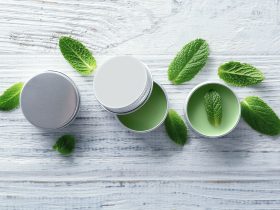There’s an undeniable luxury in the ritual of applying a smooth, silky oil to the skin. Whether you’re someone who revels in the fanciful side of beauty or not, the moment of stepping out of a shower and enveloping your skin in layers of luxurious liquid is the epitome of skincare indulgence.
This is especially true if you know the importance of as well as the differences between moisturization and hydration of the skin.
Beauty, at its best, should be a personalized and enjoyable experience – one that you look forward to. Taking care of your skin becomes a pleasurable routine, and oils play a significant role in elevating that experience.
The secret to truly falling in love, perhaps even becoming obsessed, with skincare oils lies in discovering the one that suits you best. The array of beautiful oils available each brings its own set of unique benefits and characteristics.
Some oils are rich, dense, and glossy, forming a luxurious coating on the skin. Others are light, breathable, and quick to absorb, disappearing into the skin, and leaving behind only a soft, radiant glow.
In the world of skincare, the key is to find the oil that not only nourishes your skin but also aligns with your preferences and rituals. Whether you crave the opulence of a glossy finish or the subtlety of a soft glow, the right skincare oil can transform the act of self-care into a daily indulgence.
Here are the top 3 best skincare oils backed by science!
Olive oil – the best dense and rich option
For those who appreciate a luxuriously rich skincare experience, olive oil stands out as a versatile multitasking hero, cherished not only in culinary endeavors but also in beauty routines. Its dense and syrupy golden consistency makes it the perfect choice for individuals who desire a more substantial application.
Olive oil boasts notable richness in vitamin E, a fat-soluble antioxidant renowned for its impressive ability to combat free radicals. Studies indicate that the oil possesses anti-inflammatory properties, which can be attributed to its vitamin E content.
This quality makes olive oil effective in soothing irritated skin and managing oxidative stress. The significance of these benefits lies in addressing inflammation, a key contributor to collagen breakdown, dark spots, and premature aging.
In essence, olive oil transcends its role in the kitchen to become a nourishing and indulgent component of skincare. Its dense texture, combined with its antioxidant and anti-inflammatory properties, makes it an ideal choice for those seeking a skincare routine that not only feels rich but also addresses key aspects of skin health.
Safflower seed oil – the best lightweight option
For those who prefer a lightweight feel without the lingering residue, safflower seed oil emerges as an excellent choice among dry oils. The term “dry oil” pertains to the rate at which the oil absorbs into the skin, not its consistency.
Unlike thicker oils, dry oils are characterized by their light and non-greasy nature, leaving the skin feeling dry post-application – an ideal option for individuals who favor lightweight face lotions and products.
Safflower seed oil, among various dry oil options, stands out as a top contender. Its thin and highly spreadable liquid texture makes the application effortless, imparting a subtle golden hue to the skin.
However, its distinction goes beyond just its consistency. Safflower seed oil boasts a high content of antioxidants and omega fatty acids 3, 6, and 9, essential for maintaining proper barrier function and hydration.
What sets safflower seed oil apart is its inclusion of acacetin, a collagen-enhancing compound with remarkable properties.
Research indicates that this compound, along with safflower seed oil, can effectively mitigate environmental damage by blocking collagen loss. Specifically, acacetin inhibits an enzyme in the skin – collagenase-1 or MMP11 – that plays a pivotal role in the degradation of collagen types 1 and 3.
This enzyme is activated by environmental stressors like UV exposure, but acacetin intervenes in this process, preventing the breakdown of connective proteins and, consequently, the formation of wrinkles.
In essence, safflower seed oil, with its lightweight and nourishing qualities, not only provides a delightful sensory experience but also delivers valuable skincare benefits, making it an exceptional choice for those who appreciate a dry, yet effective, oil.
Jojoba oil – the best in-between option
For those seeking a middle-ground texture that strikes a balance between richness and ease, jojoba oil proves to be an excellent choice. Offering a no-fuss and uncomplicated option, jojoba oil closely resembles our skin’s natural oils in structure, making it an easy and versatile addition to skincare.
Jojoba oil plays a crucial role in comforting the skin barrier and aiding in moisture retention, thereby reducing transepidermal water loss. Its nutrient-rich profile includes beauty-enhancing elements such as vitamin E, vitamin B complex, copper, and zinc, contributing to various healthy aging benefits.
Notably, research indicates that jojoba oil stimulates collagen synthesis, further highlighting its positive impact on skin health.
Beyond supporting the skin barrier, jojoba oil is particularly beneficial for individuals prone to acne, making it an excellent middle-of-the-road option. Structurally similar to sebum – the natural oily substance secreted by sebaceous glands to moisturize the skin and hair – jojoba oil helps regulate sebum production, reducing skin oiliness.
Additionally, its high levels of iodine contribute to balancing bacteria overgrowth, potentially preventing breakouts.
In essence, jojoba oil stands as a versatile and accommodating choice for those seeking a skincare solution that combines ease of use with a range of skin-nourishing benefits.
















Find Us on Socials